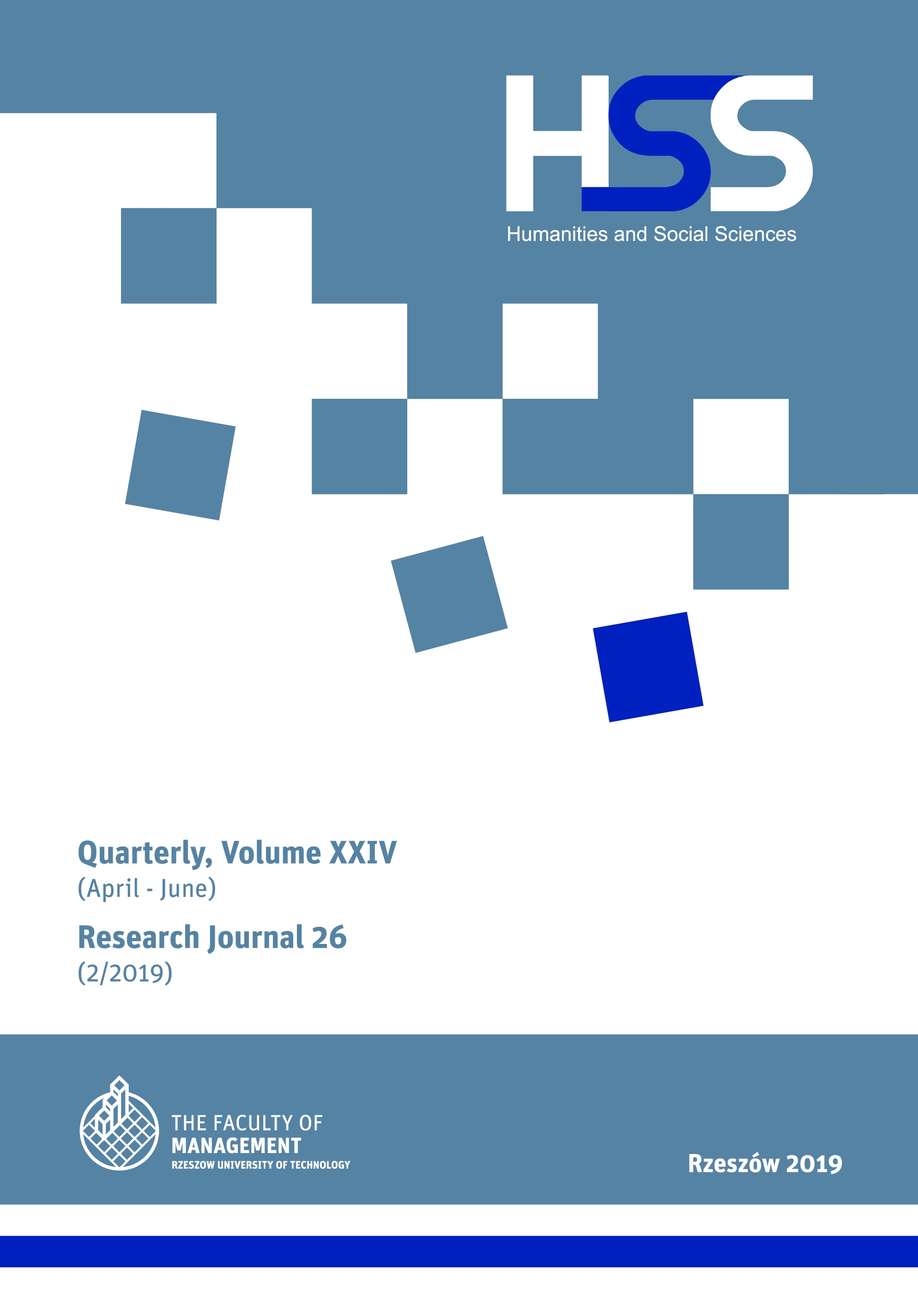Abstrakt
The media contribute to the process of strengthening and consolidating the collective memory of specific communities by taking, emphasising, and disseminating particular topics and contents. In this context, the so-called mediatised memory (see Assmann, 2007, Zielińska, 2018) occurs more and more often, as well as the media mechanisms and strategies for forming or deforming reality that influence or even model our memory of well-known figures, events or processes. It is both mediated and caused by the language which ‘on the one hand appears as a substance and a ‘bearer’ of collective memory, and on the other, as a medium that shapes the contents of collective memory’ (Czachur, 2018). The aim of the following paper is to investigate the selected corpus (obituaries) and determine to what extent the analysis of specific approaches in the field of linguistics and discourse can lead to the conclusion regarding mediatised and collective memory (see Czachur, 2016; Czachur, 2018). Additionally, it attempts to show whether and to what extent the media model the collective memory, as well as create and disseminate the linguistic profile of well-known personalities. In order to shed some light on the mediatized memory and to explain it from a linguistic perspective, obituaries for Marcel Reich-Ranicki are subjected to a contrastive German-Polish analysis. The analysis draws on selected methods of linguistic discourse analysis, which serve the linguistic profiling of actors, namely nominations and predicates as well as role assignments referring to the mentioned personality with the aim to investigate the shaping of the collective memory by the media. A detailed contrastive corpus-based analysis of the above-mentioned text type provides an insight into the role of linguistic strategies of remembering in the construction of the collective memory.
Bibliografia
Adamzik, K. (2002). Interaktionsrollen. Die Textwelt und ihre Akteure – Texte. Diskurse. Interaktionsrollen. Analysen zur Kommunikation im öffentlichen Raum, Tübingen, ed. K. Adamzik.
Antos. G. (2009). Teksty jako formy konstytuowania wiedzy. Ewolucyjne fundamenty lingwistyki tekstu – tezy [w:] Bilut-Homplewicz, Z., Czachur, W., Smykała, M., ed., Lingwistyka tekstu w Niemczech. Pojęcia, problemy, perspektywy. Wrocław/Dresden 2009.
Assmann, A. (2007). Der lange Schatten der Vergangenheit: Erinnerungskultur und Geschichtspolitik. Bonn.
Bellmann, G. (1989). Zur Nomination und Nominationsforschung. „Beitrage zur Erforschung der deutschen Sprache“, No. 9.
Bonacchi, S. (2013). Einige Bemerkungen zum polnisch-deutschen Dialogdiskurs. Die „Kartoffel-Affäre“ und die Rolle der diskursiven Kompetenz im interlingualen Diskurstransfer [w:] Meinhof, U.H., Reisigl, M., Warnke, I.H., ed., Diskurslinguistik im Spannungsfeld von Deskription und Kritik. Berlin.
Busse, D., Teubert, W. (1997). Ist Diskurs ein sprachwissenschaftliches Objekt? Zur Methodenfrage der historischen Semantik [w:] Busse, D., Hermanns, F., Teubert, W., ed., Begriffsgeschichte und Diskursgeschichte. Methodenfragen und Forschungsergebnisse der historischen Semantik. Opladen.
Büscher, H. (1996). Emotionalität in Schlagzeilen der Boulevardpresse. Theoretische und empirische Studien zum emotionalen Wirkungspotential von Schlagzeilen der Bildzeitung. Frankfurt/M.
Chlebda, W. (2012). Pamięć ujęzykowiona [w:] Adamowski, J., Wójcicka, M. ed., Tradycja dla współczesności, t. 6: Pamięć jako kategoria rzeczywistości kulturowej. Lublin.
Czachur, W. (2016). Dlaczego pamięć społeczna może być obiektem badań lingwistycznych? [w:] Godlewicz-Adamiec, J., Kociumbas, P., Michta, E., ed., Karły na ramionach olbrzymów? Kultura niemieckiego obszaru językowego w dialogu z tradycją, vol. 2. Warszawa.
—— (2018, red.). Pamięć w ujęciu lingwistycznym. Warszawa.
—— (2018). Lingwistyka pamięci. Założenia, zakres badań i metody analizy, – Pamięć w ujęciu lingwistycznym, ed. W. Czachur, Warszawa.
Girnth, H. (1993). Einstellung und Einstellungsbekundung in der politischen Rede. Eine sprachwissenschaftliche Untersuchung der Rede Philipp Jenningers vom 10. November 1988. Frankfurt/M.
Halbwachs, M. (1985). Das Gedächtnis und seine sozialen Bedingungen. Berlin.
Hanus, A. (2014). Was wird hier überhaupt kritisiert? Kritisieren im deutschen Pressediskurs zu „Kapuściński non-fiction”. „Studia Germanica Gedanensia“ 31.
—— (2015). Wspomnienie pośmiertne – gatunek o wielu obliczach? Spojrzenie z perspektywy badań germanistycznych. „Słowo. Studia językoznawcze” 6.
—— (2016). Der Nachruf in der polnischen und der deutschen Presse anhand der Texte um den Tod von Marcel Reich-Ranicki [w:] Kaczmarek, D., ed., Politik – Medien – Sprache. Deutsche und polnische Realien aus linguistischer Sicht. Łódź.
—— (2018). Krytykowanie i jego operacjonalizacja w kontrastywnej analizie dyskursu. Wrocław/Lipsk.
Herbig, A., Sandig, B. (1994). Das kann doch wohl nur ein Witz sein! Argumentieren, Bewerten und Emotionalisieren im Rahmen persuasiver Strategien [w:] Moilanen, M., ed., Überredung in der Presse. Texte, Strategien, Analysen. Berlin/New York.
Kaczmarek, D. (2018). Binationale Diskursanalyse. Grundlagen und Fallstudien zum deutsch-polnischen Gegendiskurs. Łódź.
Miller, D. (2014). Emotionalität und Wertung im Diskurs. Eine kontrastive Analyse deutscher und polnischer Pressetexte zum EU-Beitritt Polens. Frankfurt/M.
Reisigl, M. (2007). Nationale Rhetorik in Fest- und Gedenkeden. Eine Diskursanalytische Studie zum „österreichischen Millennium“ in den Jahren 1946 und 1996. Tübingen.
Stenschke, O. (2005). Rechtschreiben, Recht sprechen, recht haben – der Diskurs über die Rechtschreibreform. Eine linguistische Analyse des Streits in der Presse. Tübingen.
Szacka, B. (2006). Czas przeszły, pamięć, mit. Warszawa.
Traba, R. (2014). Pamięć, język a dyskursy medialne – rozmowa z prof. Astrid Erll, prof. Bożeną Witosz i prof. Robertem Trabą, „tekst i dyskurs – text und diskurs” 7.
Warnke, I. H., Spitzmüller, J. (2009). Wielopoziomowa lingwistyczna analiza dyskursu, „tekst i dyskurs – text und diskurs” 2, Warszawa.
Witosz, B. (2014). Pamięć, język a dyskursy medialne – rozmowa z prof. Astrid Erll, prof. Bożeną Witosz i prof. Robertem Trabą, „tekst i dyskurs – text und diskurs” 7.
Zielińska, K. (2018). Pamięć w wymiarze multimodalnym – strategie upamiętniania na przykładzie polskich i niemieckich zapowiedzi internetowych [w:] Czachur, W., ed., Pamięć w ujęciu lingwistycznym. Warszawa.


